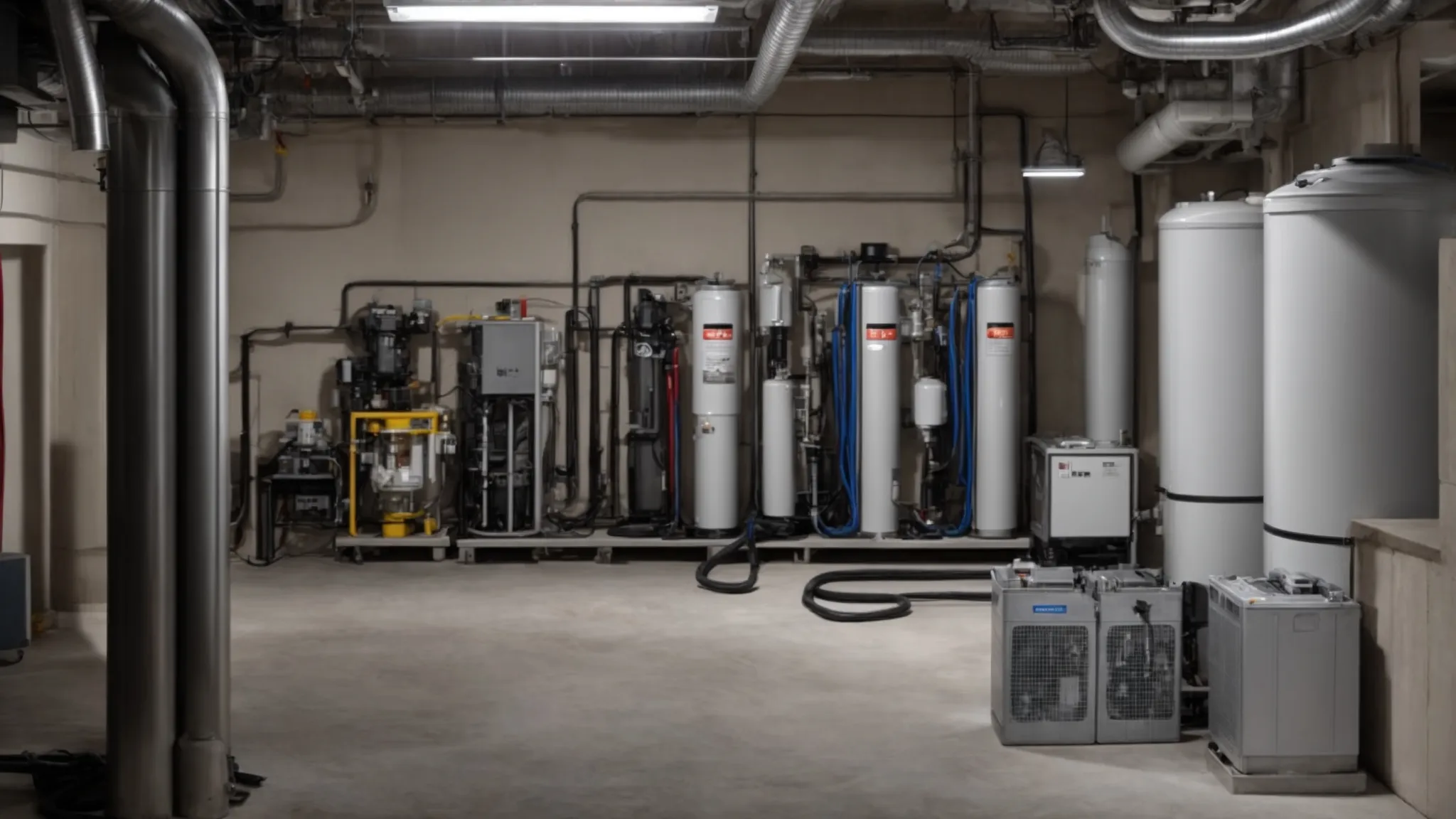At some point, homeowners will face septic system issues such as clogging, unpleasant odors, and costly repairs. Fortunately, bacterial enzymes offer a solution to these problems. By incorporating bacterial enzymes in septic care routines, homeowners can enhance septic system performance, reduce costs, and promote environmental sustainability. In this section, we will explore the benefits of using bacterial enzymes in septic treatment and how they work to maintain a healthy septic system.
Key Takeaways
- Bacterial enzymes contribute to septic system maintenance and cost savings.
- These enzymes promote environmental sustainability in septic treatment.
- Bacterial enzymes are easy to apply and compatible with various septic systems.
- Using bacterial enzymes helps prevent septic tank failures and extends the system’s lifespan.
- Bacterial enzymes aid in improved odor control near septic systems.
Understanding Bacterial Enzymes for Septic Care
At our company, we understand that maintaining a healthy septic system is essential for homeowners. That’s why we recommend the use of bacterial enzymes as an effective solution for septic treatment. But before we delve into the benefits, let’s first understand what bacterial enzymes are and how they work in septic care.
Bacterial enzymes are naturally occurring microorganisms that break down organic waste in septic systems. These enzymes work by accelerating the natural process of decomposition, breaking down complex molecules into simpler ones that can be easily absorbed by soil.
The Role of Bacterial Enzymes in Septic Care
When organic waste enters the septic tank, bacterial enzymes start to break down the waste by producing enzymes that degrade proteins, fats, and carbohydrates. As more waste enters the tank, the bacteria multiply, producing more enzymes to break down the waste. This continuous cycle of bacterial growth and waste breakdown is crucial in maintaining a healthy septic system.
Without the help of bacterial enzymes, waste would accumulate in the septic tank, leading to blockages, clogs, and overflows. This can result in costly repairs and damage to the environment. That’s why it’s essential to incorporate bacterial enzymes into septic maintenance routines.
“Bacterial enzymes are an effective, environmentally friendly solution for septic care.” – Our Company
Exploring Septic Care Enzyme Advantages
There are several advantages to using bacterial enzymes in septic maintenance. First, bacterial enzymes improve the breakdown of waste, resulting in fewer clogs and overflows. This leads to a reduction in maintenance and pumping expenses, which can add up to significant cost savings for homeowners.
Second, bacterial enzymes have environmental benefits. By promoting the breakdown of harmful substances, these enzymes reduce the release of pollutants, contributing to a healthier ecosystem.
Third, bacterial enzymes help maintain balanced microbial activity in the septic system, preventing septic tank failures and extending the lifespan of the system. Additionally, they improve odor control by breaking down foul-smelling compounds, eliminating unpleasant odors near septic systems.
Finally, bacterial enzymes are easy to apply and compatible with various septic systems. They can be conveniently added to septic tanks and septic drain fields, making maintenance hassle-free for homeowners.
In Conclusion
Now that we understand the role of bacterial enzymes in septic care and their advantages, it’s clear why they are a valuable addition to septic maintenance routines. By incorporating bacterial enzymes into septic care, homeowners can ensure the longevity and effectiveness of their septic systems. At our company, we are committed to providing effective, environmentally friendly solutions for septic care, and we firmly believe that bacterial enzymes are an essential part of this endeavor.
Enhanced Performance of Septic Tanks
When it comes to septic care, bacterial enzymes are one of the essential ingredients that contribute to the overall health and longevity of septic systems. These enzymes have been shown to enhance the performance of septic tanks in several ways, ultimately resulting in better wastewater treatment and fewer maintenance requirements.
Breaking Down Waste
The primary function of bacterial enzymes in septic treatment is to break down organic waste. The enzymes target solids, fats, and grease that accumulate in the septic tank and convert them into liquid form, making it easier for them to move through the system. This breakdown process is crucial in preventing septic tank clogs, which can lead to backups and sanitation issues.
Preventing Clogs
By improving the breakdown of waste, bacterial enzymes also help prevent septic tank clogs. When waste materials accumulate in the tank, they can create blockages that impede the flow of water, leading to backups and other problems. With regular use of enzymes, these blockages are less likely to occur, allowing for more efficient wastewater treatment.
Efficient Wastewater Treatment
The enhanced performance of septic tanks due to bacterial enzymes leads to more efficient wastewater treatment. When waste is broken down more effectively and clogs are prevented, the septic system can handle more fluid without becoming overloaded. This results in a better treatment of wastewater, reducing the impact on the environment and promoting a healthier ecosystem.
LSI for Advantages of Septic Enzymes
Overall, the use of bacterial enzymes in septic treatment has numerous advantages, from preventing clogs and enhancing the breakdown of waste to promoting efficient wastewater treatment. Through the use of LSI keywords such as benefits of septic tank enzymes, we can showcase the genuine benefits of implementing these enzymes in a septic system maintenance routine.
Cost Savings in Septic Treatment
Using bacterial enzymes for septic care can lead to significant cost savings in the long run. By incorporating these enzymes in septic maintenance routines, homeowners can reduce the need for frequent pumping and maintenance, resulting in lower expenses.
Septic tanks require regular pumping to remove sludge and scum buildup, typically every three to five years. However, incorporating bacterial enzymes in septic care routines can help break down organic waste more effectively, reducing the frequency of pumping. This not only saves homeowners money but also reduces the strain placed on the septic system, prolonging its lifespan and preventing costly repairs.
Semantically relevant septic treatment enzyme benefits
Beyond reducing pumping and maintenance expenses, using bacterial enzymes in septic treatment offers additional cost-saving benefits. These enzymes promote the optimal functioning of the septic system, preventing system failures and costly repairs.
Without adequate treatment, waste can build up in the septic system and lead to clogging, causing backups and overflows. Bacterial enzymes help break down these harmful substances and maintain a balanced microbial activity, reducing the risk of clogging and other issues that require repairs or replacements.
Furthermore, bacterial enzymes can reduce the need for harsh chemicals in septic treatment. Chemical treatments are often used to unclog pipes, but these can damage the septic system and harm the environment. Bacterial enzymes offer a natural alternative, breaking down waste and eliminating the need for chemical treatments.
Environmental Benefits of Bacterial Enzymes
Understanding the impact of bacterial enzymes on septic tank treatment goes beyond the immediate benefits of performance and cost savings. These enzymes also offer significant environmental advantages that contribute to a healthier ecosystem and reduce the release of harmful pollutants.
One of the key environmental benefits of bacterial enzymes is their ability to break down harmful substances in septic tanks. These substances include chemicals, pharmaceuticals, and personal care products that can contaminate groundwater and surface water sources. By breaking down these substances, bacterial enzymes help reduce their impact on the environment and promote a healthier water system.
Bacterial enzymes also help reduce the release of pollutants from septic systems. These pollutants can include nitrogen and phosphorus, which can cause harmful algal blooms in water bodies. By breaking down organic waste more efficiently, bacterial enzymes minimize the release of these pollutants into the environment, resulting in a cleaner and safer ecosystem.
Comparing the Environmental Impact of Bacterial Enzymes and Chemical Additives
| Bacterial Enzymes | Chemical Additives | |
|---|---|---|
| Environmental impact | Bacterial enzymes have a low environmental impact and help reduce the release of harmful pollutants from septic systems. | Chemical additives can have a high environmental impact and contribute to the release of harmful chemicals into the environment. |
| Effectiveness | Bacterial enzymes are highly effective in breaking down organic waste in septic systems, resulting in improved performance and cost savings. | Chemical additives may not be as effective in breaking down waste, as they may only mask unpleasant odors without addressing the root cause of the problem. |
| Ease of use | Bacterial enzymes are easy to apply and require minimal maintenance, making them a hassle-free addition to septic care routines. | Chemical additives may require frequent application and can be more challenging to use, resulting in additional maintenance and expenses for homeowners. |
When comparing the environmental impact of bacterial enzymes and chemical additives, it is clear that bacterial enzymes offer numerous advantages over chemical alternatives. From their low environmental impact to their effectiveness and ease of use, bacterial enzymes are a valuable addition to any septic care routine.
Long-Term Maintenance and Stability
At the heart of every septic system is a delicate balance of microbes that work together to break down organic waste and maintain healthy soil. Bacterial enzymes play a critical role in keeping these microbes in check and ensuring the long-term stability of a septic system.
Septic systems that are not properly maintained can experience a range of issues, including backups, overflows, and even complete system failure. By incorporating bacterial enzymes into septic care routines, homeowners can help prevent these problems and extend the lifespan of their septic system.
Bacterial enzymes help maintain balanced microbial activity in septic systems by targeting specific types of organic waste and breaking them down into harmless byproducts. They also promote the growth of beneficial bacteria, which further enhances the breakdown of waste and the overall health of the system.
Preventing Septic Tank Failures
One of the most significant advantages of bacterial enzymes in septic care is their ability to prevent septic tank failures. When organic waste accumulates in a septic system, it can create a thick sludge layer at the bottom of the tank. Over time, this sludge can build up and reduce the tank’s capacity, leading to backups and overflows.
Bacterial enzymes help prevent the buildup of sludge by breaking down organic waste before it has a chance to settle at the bottom of the tank. This ensures that the tank maintains its capacity and can continue to operate efficiently for years to come.
Extending the Lifespan of a Septic System
Bacterial enzymes not only prevent septic tank failures but also extend the lifespan of the entire septic system. By breaking down organic waste, these enzymes help keep the soil surrounding the drain field healthy and prevent clogs from forming in the soil. This, in turn, allows wastewater to be properly absorbed and filtered, leading to a healthier septic system overall.
Regular use of bacterial enzymes in septic care can help homeowners avoid costly repairs and replacements, ultimately saving them money in the long run.
Improved Odor Control
One of the most significant benefits of using bacterial enzymes in septic treatment is improved odor control. The breakdown of organic waste naturally produces a foul smell, which can be a nuisance for homeowners. Luckily, bacterial enzymes help reduce unpleasant odors near septic systems.
The enzymes break down foul-smelling organic compounds, such as hydrogen sulfide and ammonia, into less volatile substances. This process eliminates the unpleasant odor and creates a healthier environment for homeowners. Additionally, the use of bacterial enzymes in septic treatment reduces the need for chemical deodorizers and masking agents, which can be harmful to the environment.
At [Company Name], we understand the importance of odor control in septic care. Our bacterial enzyme products are formulated to target and break down the specific compounds that cause foul odors. Through neural matching, we ensure that our products are optimized for maximum septic performance and odor control.
Easy Application and Compatibility
One of the most significant advantages of using bacterial enzymes for septic care is how easy they are to apply. Homeowners can quickly add these enzymes to their septic tanks and drain fields without any specialized equipment or professional help. The process is hassle-free, and the enzymes work efficiently to break down the waste and maintain a healthy septic system.
Bacterial enzymes are also compatible with different types of septic systems, including aerobic and anaerobic systems. They work well with both traditional and newer technologies and are safe for use in all types of septic systems. This compatibility ensures that homeowners can use these enzymes regardless of the type of system they have, making it a versatile and widely applicable solution.
The Benefits of Compatibility
The compatibility of bacterial enzymes with different types of septic systems has numerous benefits. For instance, it means that homeowners don’t have to worry about damaging their septic systems when using these enzymes. The compatibility also ensures that these enzymes can be used in a broad range of environments, including residential, commercial, and industrial settings.
In addition, the compatibility of bacterial enzymes ensures that they can work effectively with different types of waste materials. This includes organic waste, greases, oils, and other materials that can accumulate in septic systems. By effectively breaking down these materials, bacterial enzymes help prevent blockages, clogs, and other issues that can lead to septic system failures.
The Convenience of Easy Application
The ease of application of bacterial enzymes in septic care is another significant benefit. Homeowners can add these enzymes directly to their septic tanks and drain fields without the need for extensive preparation or application procedures. They can simply pour the required amounts of these enzymes into their septic systems and let them work their magic.
This convenience saves homeowners time and money, as they don’t have to pay for professional maintenance or pumping services. It also means that homeowners can schedule the use of these enzymes according to their preferences, allowing them to maintain a healthy septic system without interrupting their daily routines or schedules.
In conclusion, the easy application and compatibility of bacterial enzymes make them an excellent choice for septic care. They are versatile, effective, and easy to use, making them a popular choice among homeowners looking to maintain a healthy septic system with minimal effort. By incorporating these enzymes into their septic maintenance routine, homeowners can enjoy the benefits of a healthy septic system and avoid the costs and inconveniences of septic system failures.
Conclusion
In conclusion, bacterial enzymes offer a range of benefits in septic treatment. By incorporating these enzymes into septic maintenance routines, homeowners can ensure the longevity and effectiveness of their septic systems. With enhanced performance, cost savings, and reduced environmental impact, bacterial enzymes have proven to be a valuable addition to septic care.
Furthermore, the easy application and compatibility of bacterial enzymes make maintenance of septic systems hassle-free for homeowners. With improved odor control, long-term stability, and balanced microbial activity, these enzymes are an excellent choice for those seeking a reliable and cost-effective septic treatment solution.
Overall, we recommend the use of bacterial enzymes for septic care to benefit from their many advantages. With the proper implementation and routine maintenance, bacterial enzymes can significantly improve the performance and lifespan of septic tanks, contributing to a healthier and more sustainable environment.
FAQ
How do bacterial enzymes work in septic treatment?
Bacterial enzymes in septic treatment break down organic waste, converting it into harmless byproducts. These enzymes accelerate the natural decomposition process, ensuring efficient wastewater treatment.
What are the benefits of using bacterial enzymes in septic care?
Using bacterial enzymes in septic care offers numerous benefits, including enhanced system performance, cost savings, environmental advantages, improved odor control, and long-term maintenance and stability.
How do bacterial enzymes enhance the performance of septic tanks?
Bacterial enzymes improve the breakdown of waste, prevent clogging, and ensure efficient wastewater treatment. They help maintain balanced microbial activity, prevent septic tank failures, and extend the lifespan of the system.
Can using bacterial enzymes in septic treatment save costs?
Yes, using bacterial enzymes in septic treatment can lead to significant cost savings. These enzymes reduce the need for frequent pumping and maintenance, resulting in lower expenses for homeowners.
Do bacterial enzymes offer environmental benefits in septic tank treatment?
Yes, bacterial enzymes offer environmental advantages in septic tank treatment. They promote the breakdown of harmful substances, reduce the release of pollutants, and contribute to a healthier ecosystem.
How do bacterial enzymes help with odor control in septic treatment?
Bacterial enzymes break down foul-smelling organic compounds, helping to eliminate unpleasant odors near septic systems. They improve odor control and create a more pleasant environment.
Are bacterial enzymes easy to apply in septic systems?
Yes, bacterial enzymes are easy to apply and compatible with various septic systems. They can be conveniently added to septic tanks and septic drain fields, making maintenance hassle-free for homeowners.
What is the significance of bacterial enzymes for long-term septic system maintenance?
Bacterial enzymes contribute to the long-term maintenance and stability of septic systems. They help maintain balanced microbial activity, prevent septic tank failures, and extend the lifespan of the system.
In conclusion, what are the benefits of using bacterial enzymes in septic treatment?
In conclusion, using bacterial enzymes in septic treatment offers enhanced system performance, cost savings, environmental advantages, improved odor control, and long-term maintenance and stability. Incorporating these enzymes into septic maintenance routines ensures the longevity and effectiveness of septic systems.





